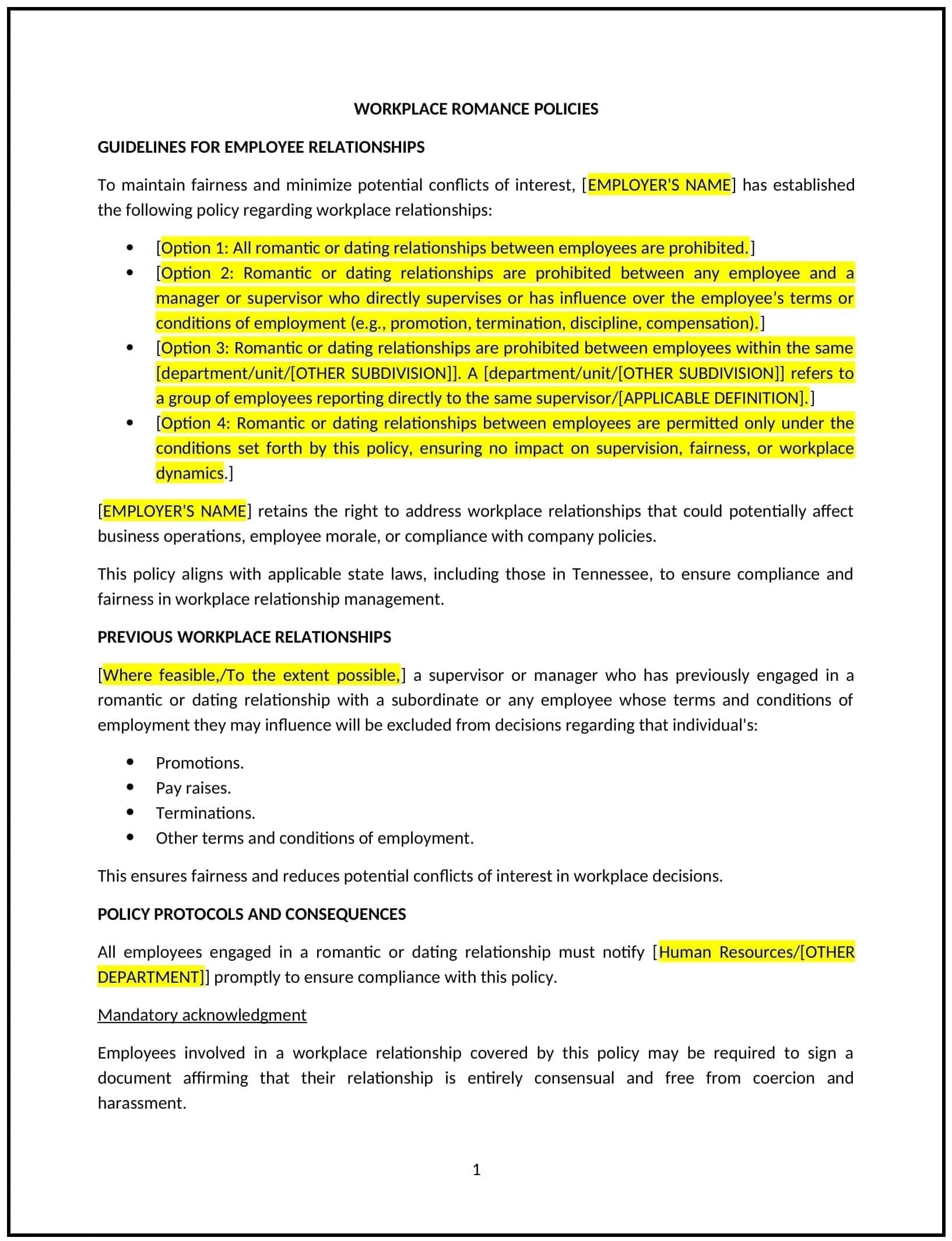Workplace romance policy (Tennessee): Free template
Got contracts to review? While you're here for policies, let Cobrief make contract review effortless—start your free review now.

Customize this template for free
Workplace romance policy (Tennessee)
This workplace romance policy is designed to help Tennessee businesses address relationships between employees in a professional manner. It outlines guidelines for disclosing relationships, avoiding conflicts of interest, and maintaining a productive work environment.
By adopting this policy, businesses can reduce potential conflicts, protect workplace morale, and ensure fairness in professional relationships.
How to use this workplace romance policy (Tennessee)
- Define workplace romance: Explain what constitutes a workplace romance, such as relationships between employees or between employees and supervisors.
- Establish disclosure requirements: Specify whether employees are required to disclose romantic relationships and to whom.
- Address conflicts of interest: Provide guidelines for managing situations where a romantic relationship could impact work decisions or team dynamics.
- Set boundaries: Outline acceptable behavior in the workplace to maintain professionalism.
- Train managers: Educate supervisors on handling disclosures and addressing potential conflicts.
- Review and update: Assess the policy annually to ensure it aligns with evolving business needs and workplace standards.
Benefits of using this workplace romance policy (Tennessee)
This policy offers several advantages for Tennessee businesses:
- Reduces conflicts: Helps prevent situations where personal relationships could impact work decisions or team dynamics.
- Protects workplace morale: Ensures fairness and professionalism in employee interactions.
- Maintains productivity: Encourages employees to focus on their work without distractions or favoritism.
- Builds trust: Demonstrates a commitment to fairness and transparency in the workplace.
- Supports reputation: Positions the business as a professional and responsible employer in the community.
Tips for using this workplace romance policy (Tennessee)
- Communicate the policy: Share the policy with employees and include it in the employee handbook.
- Provide training: Educate managers on handling disclosures and addressing potential conflicts.
- Monitor compliance: Regularly review disclosures to ensure adherence to the policy.
- Address issues promptly: Take corrective action if a romantic relationship creates conflicts or disruptions.
- Update regularly: Assess the policy annually to ensure it aligns with evolving business needs and workplace standards.